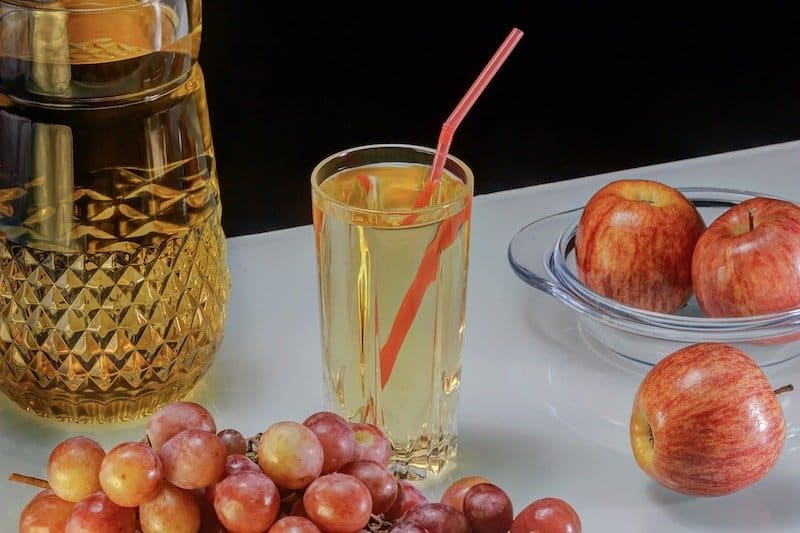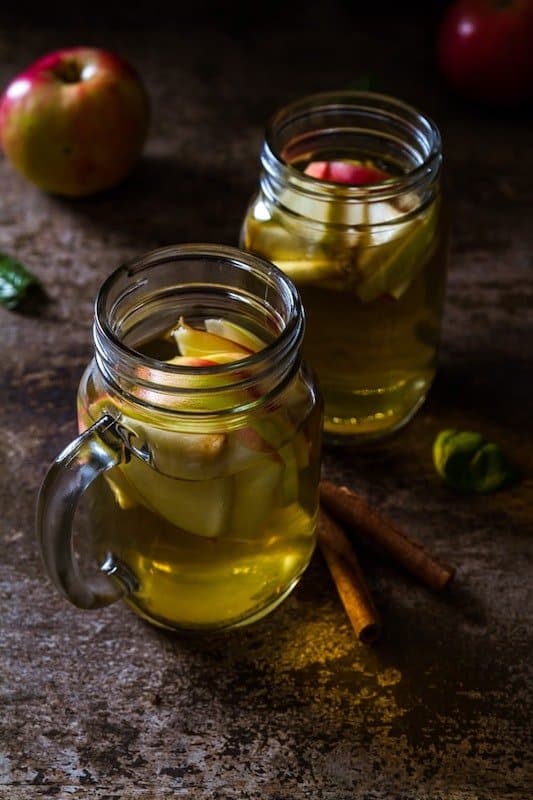Can You Ferment Apple Juice With Ascorbic Acid?
Did you know that ascorbic acid is really just vitamin C?
Since apples have a lot of vitamin C, many people think apple juice has a lot of it too. However, it doesn’t, and for this reason, many people add additional ascorbic acid when making their own apple juice or apple cider at home.
When fermenting apple juice into cider, many people question, can you ferment apple juice with ascorbic acid? In this article, you’ll find out that you can and also how ascorbic acid affects apple juice fermentation.
What is Ascorbic Acid?
While virtually everybody is familiar with vitamin C, most people don’t know what ascorbic acid is. Well, it’s actually the same thing. Ascorbic acid is water-soluble vitamin C, meaning humans don’t store it in their bodies. Instead, it passes through the body’s tissues. Ascorbic acid is vital for the proper functioning of muscles, blood vessels, and elastic tissues protecting bones and joints.
As a powerful antioxidant, vitamin C helps the body fight diseases (ranging from the common cold to cardiovascular issues) much better. While bodies naturally produce many vitamins, that’s not the case with ascorbic acid. Instead, you need to consume food rich in vitamin C, such as citrus fruits, apples, cabbage, berries, broccoli, and berries. Alternatively, you could take dietary supplements.
Vitamin C deficiency often occurs in people with a diet lacking in fruits and vegetables, those with gastrointestinal issues, or smokers. Severe cases of deficiency can result in anemia development. And when a person lacks vitamin C, their wounds tend to bleed more profusely and take longer to heal.
Does Apple Juice Have Ascorbic Acid?
Because apples are rich in vitamin C, many people consume apple juice for their daily ascorbic acid dose. However, these products are low in vitamin C, so they won’t provide you with the necessary amount. For that reason, some people have started making their own apple juice or apple cider. If you’re one of them, you’re probably wondering – can you ferment apple juice with ascorbic acid to make it even healthier?
The good news is that you can. Many manufacturers even add more ascorbic acid to apple juice to boost the amount of vitamin C. So the next time you’re planning on fermenting apple juice with ascorbic acid, know that you’ll be making a vitamin C bomb.
How Will Ascorbic Acid Affect Fermentation of Apple Juice?
When people first start fermenting apple juice, they need to look closely at the ingredients. The apple juice they purchase shouldn’t contain potassium sorbate as this will prevent yeast from growing and eventually stop the fermentation.
But when they see ascorbic acid as an ingredient, they’re often worried it’ll affect the fermentation process. So, can you ferment apple juice with ascorbic acid, or should you find a product without it? Fortunately, you don’t have to worry about this. Namely, lighter juices tend to oxidize more quickly. This ingredient prevents browning and helps the juice maintain its golden color. It also doesn’t affect the fermentation in any way.
However, fermented apple juice with ascorbic acid may taste slightly tart. If you enjoy such a taste, you can use this in apple juice. But if you don’t like it, you may have difficulty finding apple juice without vitamin C, as most manufacturers add it to their products these days.
If you plan on fermenting some apple juice over the weekend, look for a product without any preservatives or additives that might affect the fermentation process. But if the product has ascorbic acid, don’t worry. It’s just vitamin C added to prevent the juice from turning brown.
In Summary
Ascorbic acid is vitamin C and not only does it add nutritional value to apple juice, it helps it keep its bright gold color.
If you plan on fermenting store bought apple juice, you don’t have to worry about the added ascorbic acid preventing fermentation from occurring. What you should worry about, though, is potassium sorbate.
That being said, fruit is pretty easy to ferment and even ferments on its own, so even better, try and juice your own apples first to ferment! That way, you don’t have to worry about any additives getting in the way.









